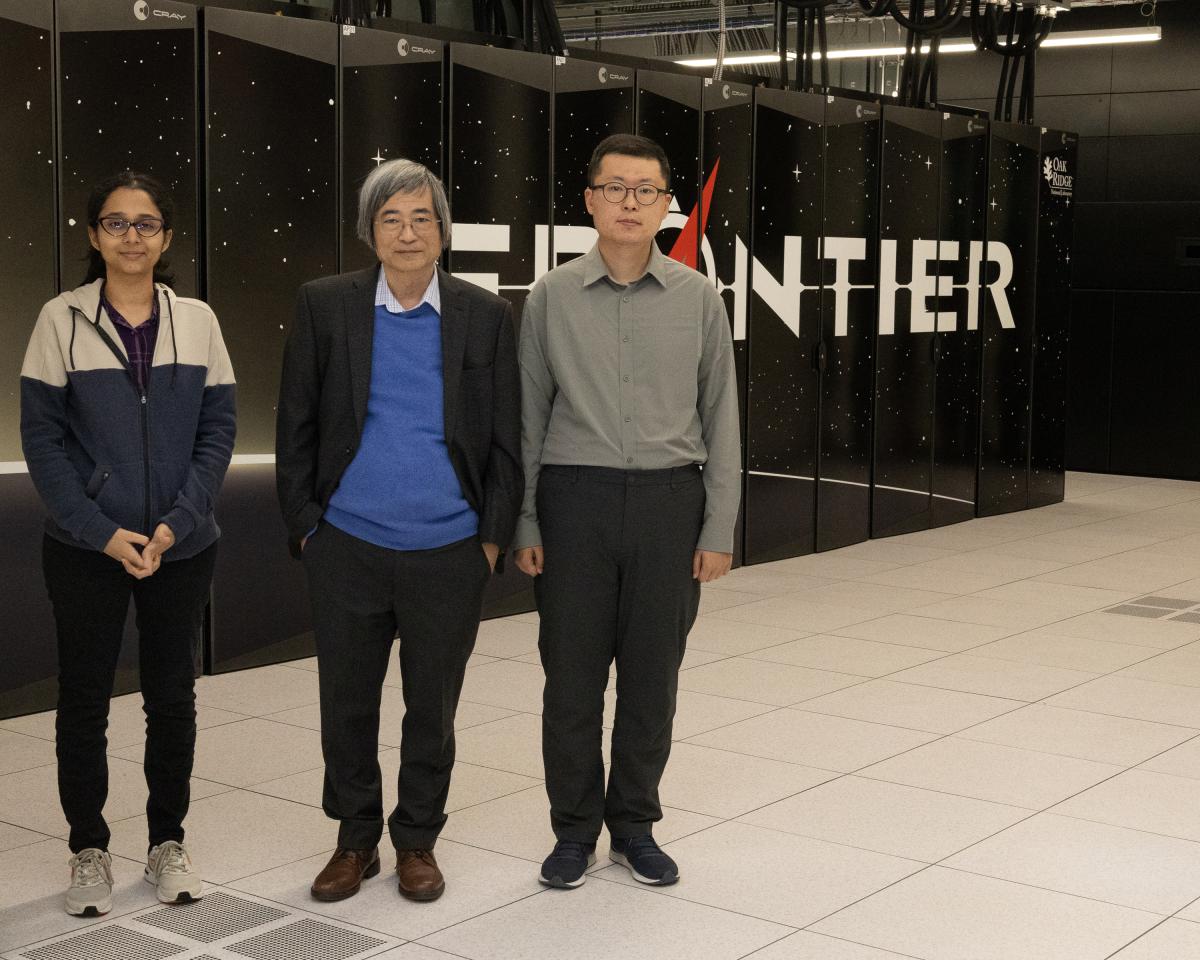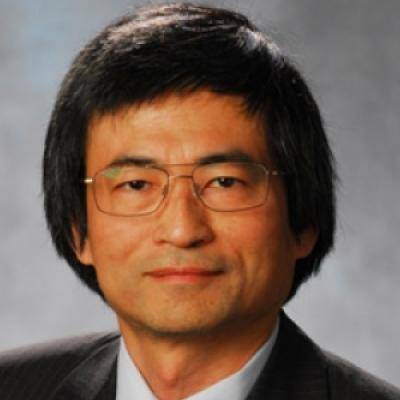P.K. Yeung receives Department of Energy INCITE Award and access to exascale computing resources.

Photo Courtesy: Carol Morgan/Oak Ridge National Laboratory
R. Vaideswaran, Professor P.K. Yeung, and S. Kim in the Frontier Machine Room
Quintillion — 1 followed by 18 zeroes — is a huge number, and a special one in computing. It marks the peak arithmetic operations per second that an exascale computer can perform. Just one such computer exists, and Professor P.K. Yeung in the Daniel Guggenheim School of Aerospace Engineering is getting access to it for his research.
The U.S. Department of Energy (DOE) has awarded coveted time on the world’s first, and so far the only exascale supercomputer called Frontier to Yeung and other scientists to pursue computationally intensive research in science and engineering. Yeung has developed state-of-the-art computer codes to perform the world's largest direct numerical simulations (DNS) of unsteady and three-dimensional turbulent fluid flows — calculations governed by the notoriously difficult Navier Stokes equations of fluid dynamics.
“We live in three-dimensional space surrounded by fluids, and fluid dynamic phenomena lie at the core of the operation of airplanes, jet engines, wind power installations, and a wide variety of applications,” Yeung explained. “Most of the time, fluid motions are turbulent, with disorderly fluctuations leading to great complexity.”
He believes new simulations utilizing the power of Frontier, a one-of-its-kind $600 million computer, will be a game changer because we will be able to unlock many secrets that require a tremendous degree of detail never contemplated or deemed feasible before.”
Exascale computers are used to model and simulate complex, dynamic systems that would be too expensive, impractical, and impossible to physically demonstrate. DOE expects the unprecedented computing power to help unlock more realistic models of Earth systems and climate, build fusion power plants, and study the universe in new ways.
Yeung will work with co-investigators Katepalli Sreenivasan at New York University, Charles Meneveau at Johns Hopkins University, and Daniel Livescu at Los Alamos National Laboratory on the project, one of the 2024 Innovative and Novel Computational Impact on Theory and Experiment (INCITE) Awards.
"Professor Yeung has been among the most prominent leaders in DNS on a spatially periodic solution domain ideal for fundamental investigations almost ever since he started research, and it has been my privilege to collaborate with him over many of those years," said Sreenivasan, University Professor, and Eugene Kleiner Chair for Innovation at NYU.
The INCITE award is Yeung’s second large allocation of resources on Frontier in 2023 and 2024, computing time. The results that he is able to calculate, new datasets on the order of one petabyte (1,000 terabytes) in size from the new simulations, will be available to the public through the Johns Hopkins Turbulence Database project.
“Professor Yeung’s simulations are precisely the kind of science that can be uniquely calculated on Frontier,” said Bronson Messer, director of science at the Oak Ridge Leadership Computing Facility, which operates the supercomputer. “The extreme computational speed and memory required to study and model turbulence — the last great classical physics problem— is exactly why DOE has invested in exascale computing.”
